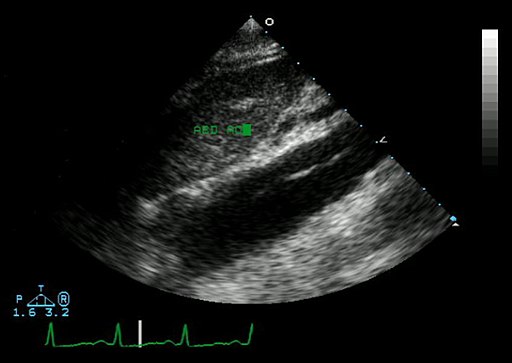Juvenile dermatomyositis
2. Cardiac manifestations
Cardiac manifestations, especially severe ones, are rare in pediatrics. Patients may present with inflammation of the cardiac tissue (myocarditis) and/or presence of fluid in the pericardial area (pericardial effusion, pericarditis). Depending on the degree of involvement, the patient may be asymptomatic or present chest pain, fatigue, inability to exert effort, etc. Occasionally heart rhythm disturbances (arrhythmias) may appear, generally asymptomatic.
The presence of cardiac disease may condition immunosuppressive treatment.
This assessment is performed by the pediatric cardiologist by means of a physical examination of the cardiovascular system complemented by tests such as electrocardiogram and echocardiogram.
- Electrocardiogram: It consists of applying sticker-shaped electrodes on the thorax connected to wires that go to a recording device. This measures the electrical activity of the heart and provides information on how the electrical impulse propagates.
- Echocardiogram: assessment of the structure and contractility of the heart using ultrasound. It is performed by applying a probe with conduction gel on the patient's chest.

If these tests show alterations, the need to extend the study and/or modify the immunosuppressive treatment will be assessed.
In patients with alterations in the baseline study and in those with a disease that is difficult to control, arterial hypertension, chronic activity or prolonged treatment with high doses of corticosteroids, controls should be performed more frequently.